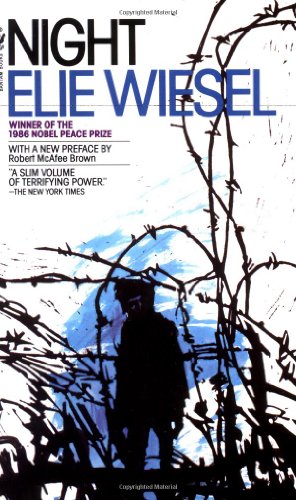Towards the end of the book, he loses faith in God and questions him. Wiesel states, “Why should I bless His name? The Eternal, Lord of the Universe, the All-Powerful and Terrible, was silent. What had I to thank Him for?” (31). This quote explains that Eliezer is questioning God and refuses to praise his name because God isn't taking action. Another quote that shows that Eliezer loses faith in God states, “What are You, my God? What does Your grandeur mean, Master of the Universe, in the face of all this cowardice, this decay, and this misery? Why do you go on troubling these poor people’s wounded minds, their ailing bodies?” (Wiesel 63). This quote shows Eliezer's hostility towards God. God is letting all these people die and get hurt and isn't doing anything about it. Eliezer at the moment is angry at God and yet again, questions him.
While in the concentration camp, Elie and all the other Jews were treated inhumane and lower than a human. They weren’t called by their names, they wouldn’t give them food and the necessities needed to live, and they were treated as if they were animals. “...a workman took a piece of bread out of his bag and threw it onto a wagon. There was a stampede. Dozens of starving men fought each other to the death for a few crumbs. The German workmen took a lively interest in this spectacle” (Wiesel 95). The German workmen think it’s very amusing that these starving Jews are fighting over food as if they were animals. Clearly, they aren't giving these starving men the basic needs to live/survive. Also, Eliezer and other Jews weren't called by their names. They were given tattoos instead. “I became A-7713. After that I had no other name” (Wiesel 39). This was a way to dehumanize Elie.
Eliezer has gone through many transformations and changes throughout the book. He transforms in a negative way impacting his faith in God and his life in general. Eliezer can never take back what he's gone through and what he's seen. Eliezer is clever and courageous and I adore that about him.
Wiesel, Elie. Night. New York: Bantam Books, 1958. Print.

+(6).jpg)
No comments:
Post a Comment